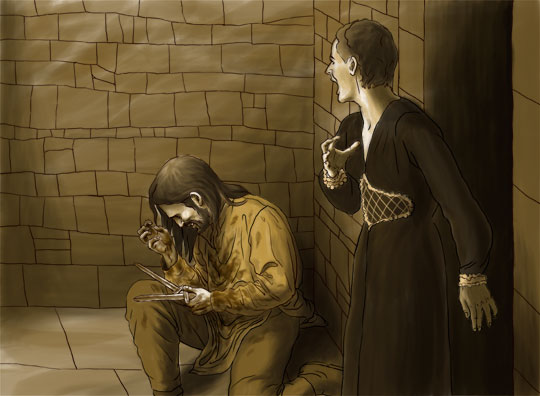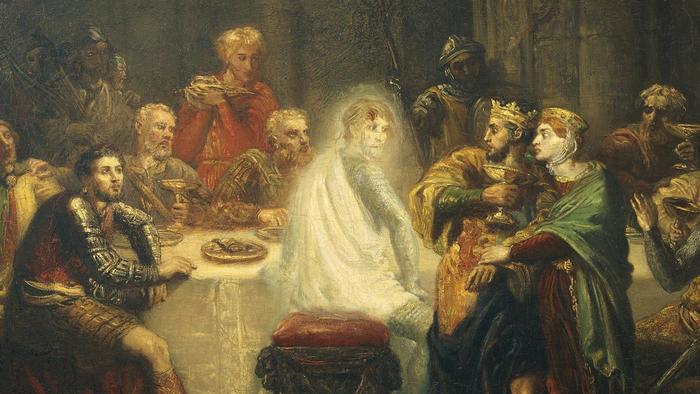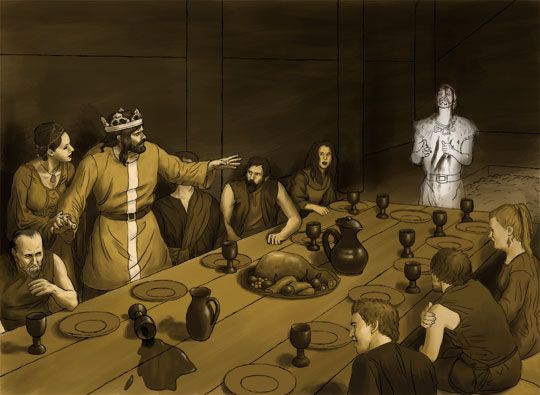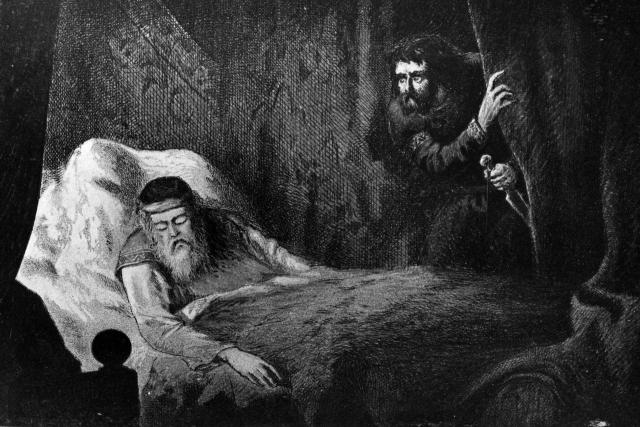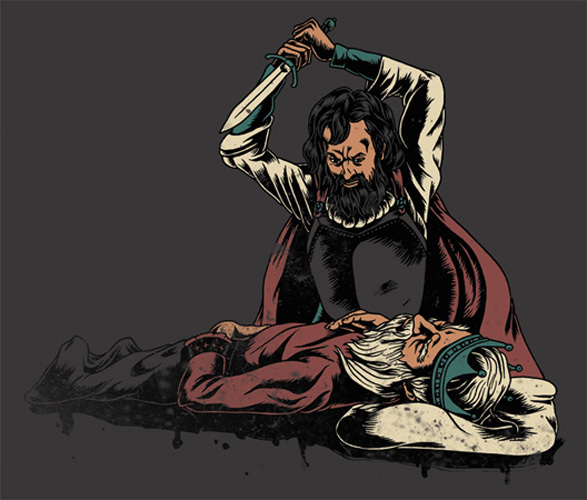Salvation and Damnation Theme
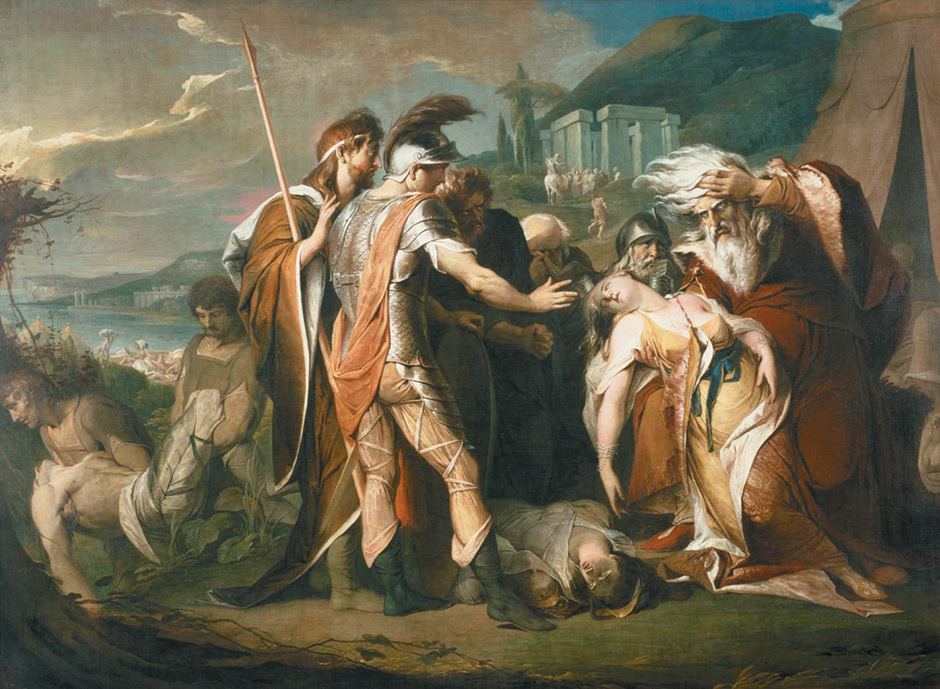
Salvation and Damnation
As a morality tale of sorts, Macbeth recognizes the damning consequences of his crime: . . . Besides, this Duncan Hath borne his faculties so meek, hath been So clear in his great office, that his virtues Will plead like angels, trumpet-tongued against The deep damnation of his taking-off." (I vii 16-20) And yet Macbeth carries out the crime, thus precipitating his own descent into hell. Later in the play, appropriately, Macduff calls Macbeth by the name of "hell-hound" (V x 3).
Indeed, the story of Macbeth is that of a man who acquiesces in his damnation - in part because he cannot utter words that may attenuate his crime.
As Duncan's guards pray "God bless us" on their deathbed, Macbeth cannot say one "Amen" (II ii 26-27). His fate is thus sealed entirely by his own hands.


